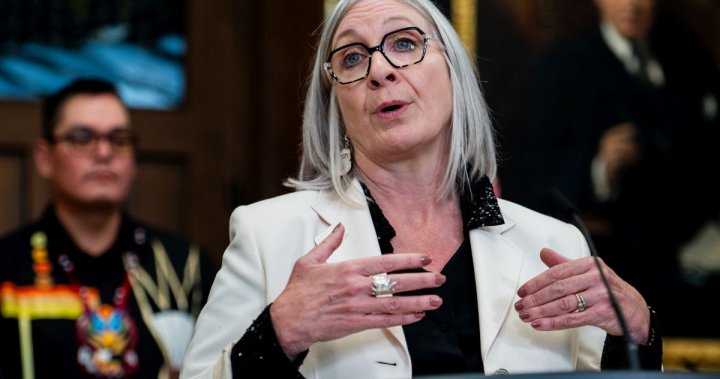Indigenous Services Minister Patty Hajdu has stated that the Assembly of First Nations (AFN) must provide a clear message about how they want to proceed after chiefs voted against a $47.8 billion child welfare reform agreement. The AFN National Chief, Cindy Woodhouse Nepinak, is being urged to address concerns about the lack of consultations and the weak deal that resulted in the reform deal being rejected at a recent gathering in Calgary. The government is awaiting a plan from the AFN and is willing to explore all options to ensure negotiations can continue.
Woodhouse Nepinak indicated that the deal was defeated by a group of individuals who believed it posed a threat to the existing child welfare industry. Cindy Blackstock, the head of the First Nations Child and Family Caring Society, disputed this characterization and highlighted the real concerns that chiefs brought forward. This reform agreement was a result of a human rights complaint filed almost two decades ago by the caring society and the AFN, which exposed discriminatory funding for child and family services on reserves compared to off-reserve services. Following legal battles, the Canadian Human Rights Tribunal ruled in favor of the AFN and the caring society, ordering the government to address the discrimination.
The rejection of the child welfare reform agreement has sparked tensions between the AFN, the government, and Indigenous groups. Critics have pointed to the lack of meaningful consultations and the inadequate nature of the deal as reasons for its failure. However, the AFN and the caring society have been fighting for equitable funding and services for Indigenous children for years, highlighting the urgency of addressing this issue. The government has indicated its willingness to continue negotiations and find a resolution that addresses the concerns raised by chiefs and Indigenous advocates.
The fallout from the rejected child welfare reform agreement underscores the ongoing challenges faced by Indigenous communities in Canada. The history of discriminatory funding and inadequate services for Indigenous children reflects systemic issues that must be addressed through meaningful dialogue and concrete action. The AFN, the caring society, and government officials must work together to find a sustainable solution that upholds the rights and well-being of Indigenous children and families. Moving forward, it will be crucial for all parties to prioritize collaboration and accountability in order to achieve positive outcomes in the child welfare system.
The messaging from Indigenous Services Minister Patty Hajdu emphasizes the importance of the AFN providing a clear direction on how to proceed following the rejection of the reform agreement. The government’s commitment to exploring all options to continue negotiations signals a willingness to address the concerns raised by chiefs and Indigenous advocates. The need for equitable funding and services for Indigenous children remains a critical issue, and all parties involved must prioritize finding sustainable solutions that uphold the rights and well-being of Indigenous communities. By working together and engaging in meaningful dialogue, progress can be made towards a more just and equitable child welfare system in Canada.


